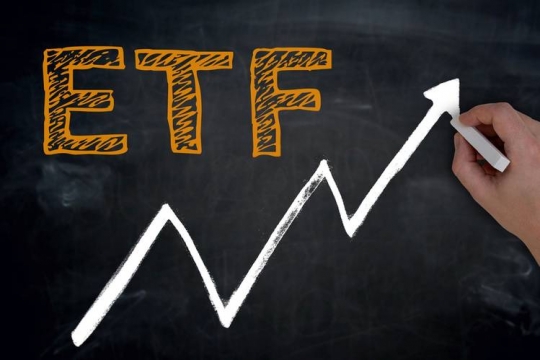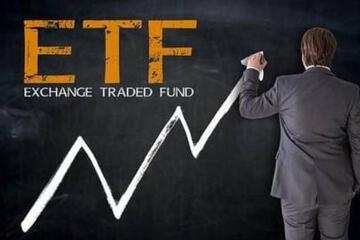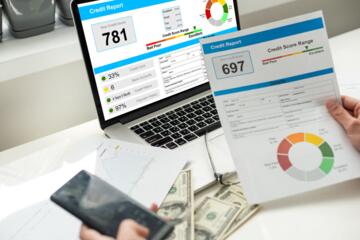The other day I was out for lunch at a nearby restaurant (great place by the way) when I heard one suit telling another “An ETF is an ‘Exchange Traded Fund’. Simple, right?

Advantages of Using Funds vs Individual Investing
Okay, maybe it isn’t so simple, because if you’ve never dealt with an ETF before, hearing ‘exchange traded fund’ doesn’t really explain much to you. First, let’s take a look at the word fund, and what it means for you. A fund is a way of combining investments from different sources. Those can be private investors or they can be pre-existing groups. These people pool their money together into one big chunk of cash – this is the fund.
There are a few reasons to do this instead of just investing separately. Firstly, you benefit from the bigger amount of capital this fund is worth because it can save you money on fees and transaction costs. Since there’s a lot more cash involve, traders and brokers are willing to deal for a lower percentage fee overall. In fact, you can attract better brokers/traders because they want to manage as much cash as possible!
A fund having more cash means it has more buying power too. A large enough fund can even impact the market when it makes moves! This means you can get some great terms if a large part of the market wants to buy or sell when you’re looking to do the opposite – the dream deal for investors everywhere.
Having a big fund also lets you hire full-time managers, which isn’t cost effective for single person investments (unless you’re on the rich list). A good manager can be the difference between a mediocre fund and a great one. This isn’t really as relevant to an ETF though because these funds already have a set portfolio, though sometimes a manager is still used. Most traditional funds can also diversify over different investments, so there’s less risk.
ETF Specific Advantages Over Other Funds
ETF’s are funds which already have a pre-existing portfolio. While this means you get the benefits of diverse investments, you don’t have the flexibility to pick and choose what those investments are. ETF’s are listed commodities, so the price for each one is listed on the market and moves through the day. This is where they differ from other types of fund, which only change price once a day.
Having a set market price makes an ETF more transparent and easier to track, but the real advantage is that it is liquid. This means you can buy/sell at any time when markets are open, so if you want to free up some cash or leave a losing fund, you just make the call to sell your holdings.
While this type of fund is already locked into specific investments, it is possible to shop around and find an ETF which follows a specific industry, theme, market or geographical area. For example, there are funds which are invested mainly in the UK or Australia, while another could be based on the commodity of gold or on businesses in the Nasdaq. This isn’t the same as picking and choosing individual stocks/shares for a fund, but it gives a good deal of freedom to invest your money in the general area you want to.
We mentioned earlier that pooling investments into a fund can get you better deals on what you pay in fees. Added to this, ETF’s have a lower cost to begin with anyway, so by having an ETF at the same price as a mutual fund, the ETF would have lower fees. The catch here is that you must trade through a brokerage firm when you want to buy or sell, and the firm will have its’ own set of fees. Finding a good brokerage house can definitely leave your payments in fees and commissions much lower than with a mutual fund.
How an ETF Compares to an ETN
An ETN (Exchange Traded Note) doesn’t function the same way as an ETF at all. The names of these two investments look similar, but that’s where it ends. The ‘note’ is much more like a loan, where you have bought a credit note from the issuer. The terms of this note mean it can return a huge profit if the circumstances are right – but it’s also open to a massive loss.
You’re gambling that the issuer will do well with the investment and continue to grow and increase in value. By doing this, they can then fulfill the terms of your credit note and pay you back the principal plus any extra profit owed (depends on the terms of your note). Of course, if the issuer loses cash you might only get your principal back – and even worse, if the issuer becomes insolvent you can lose your entire investment. A note is not a share, and you don’t own any part of the company or its’ products. Think of it as a creditor issuing a loan to somebody who then declares bankruptcy. With an ETN, you’re the creditor.
An ETF, on the other hand, doesn’t work at all like a credit note – it works like a fund. This means that when you buy into one, you own a small piece of the companies within the fund. This is always going to have some value. Using an ETF ties the value of your investment to the prices of various stocks & shares. Your risk is lowered because these will still exist as long as the companies do (and your investments are spread over many, possibly hundreds, or different stocks/shares).
This means that the value of your fund is tied to the market value of the shares as well though, so your gains are limited by market movements (unlike an ETN which can pay you many times the market gains on what you have loaned to them).
ETF Risks
There are no investments which are a sure thing. The risks of using an ETF are similar to using other investment funds. They could be tied to a specific market or commodity which can be bad if that sector experiences a crash. There’s also the limited gains because of the stability this investment type offers.
It can also be a worse investment than a simple tracker fund or mutual fund if the movement in value doesn’t accurately reflect overall market movement. This can happen with poor management or riskier funds. Some investors prefer volatile, risky funds because they can have big upsides. An ETF is not targeted at these people though, it’s more of a low-risk low-reward investment, offering stable growth over time.
Disclaimer: Our service is not intended to be, nor should it be construed as financial advice. We help our readers make informed decisions via impartial information and guides. Where appropriate, we may introduce partner companies who can provide services relating to financial products.







